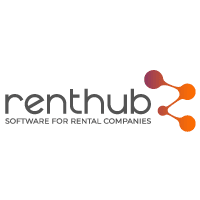| EZRentOut |
Offers an all-in-one flow that joins CRM, contracts, e-signature, and virtual POS in one place. Multilingual options and modular add-ons suit mixed fleets and multi-branch teams. Real-time dashboards feel simpler than EZRentOut’s deeper asset settings, which speeds training and daily work. |
| Point of Rental |
Cloud modules cover quotes, bookings, check-in, and customer communication without heavy setup. Built-in CRM ties sales activity to operations, which gives clearer context than separate sales tools. Interface feels lighter than Point of Rental’s enterprise screens, and support feels more immediate for small to mid-sized renters. |
| Texada |
Presents a cleaner UI for counter staff and mobile users. CRM, contract templates, inventory status, and payment capture sit together, which reduces app switching. Multilingual support and branded documents help customer-facing teams. Reports feel quick to interpret, while Texada often favors very advanced operational depth. |
| Rentman |
Provides stronger sales visibility with CRM connected to availability and pricing. Contract e-sign and virtual POS help close deals faster than email-only flows. Setup feels straightforward for non-technical teams, and dashboards highlight what requires attention now, while Rentman emphasizes production planning details for AV and events. |
| HQ Rental Software |
Blends vehicle and equipment workflows, which suits mixed rental fleets. Centralized CRM, contracts, and payments reduce fragmentation across tools. Multilingual options and branded templates support tourism or international clients. Day-to-day screens feel less crowded than HQ’s advanced fleet settings, and that improves speed for front-desk staff. |

